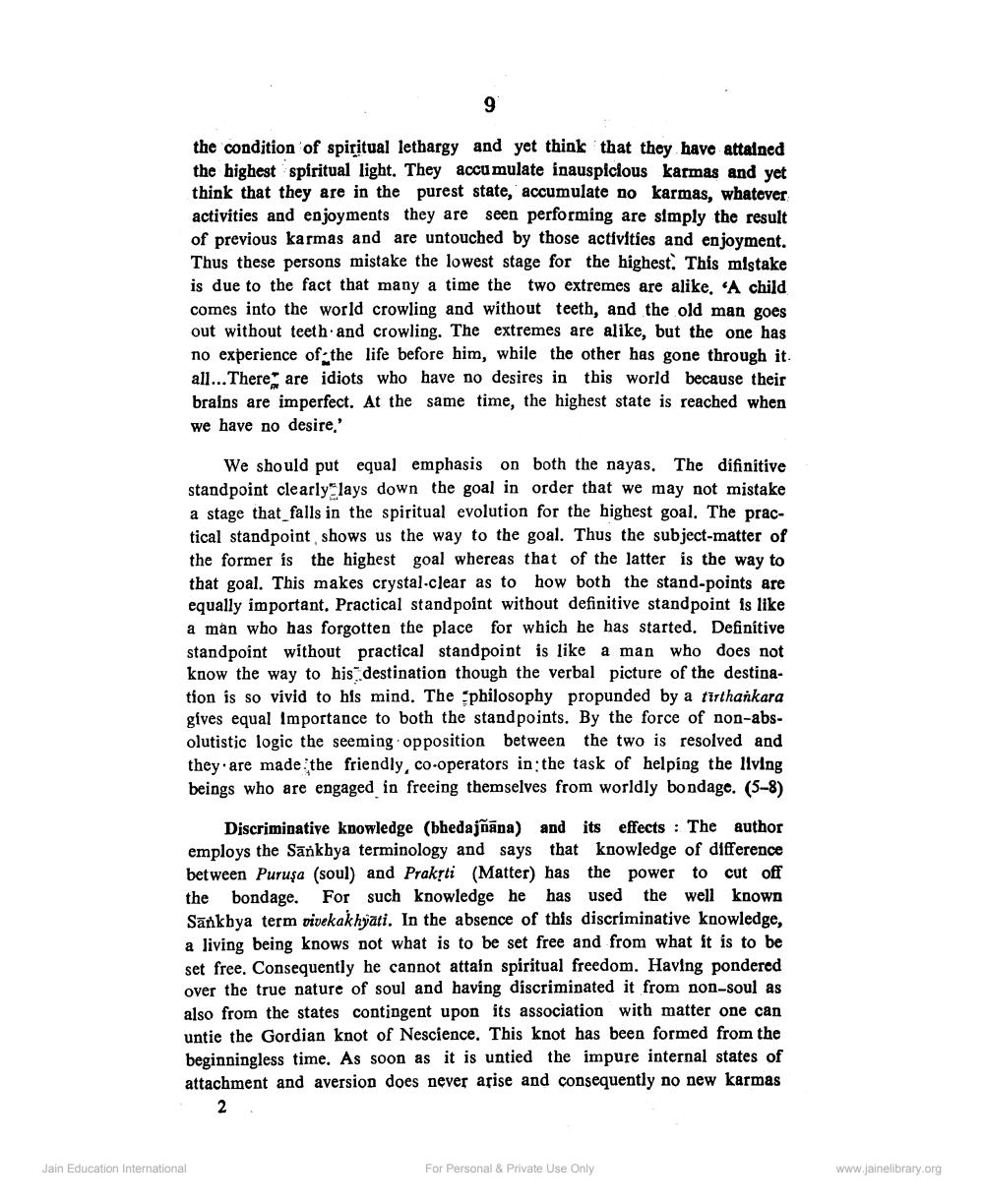________________
9
the condition of spiritual lethargy and yet think that they have attained the highest spiritual light. They accumulate inauspicious karmas and yet think that they are in the purest state, accumulate no karmas, whatever activities and enjoyments they are seen performing are simply the result of previous karmas and are untouched by those activities and enjoyment. Thus these persons mistake the lowest stage for the highest. This mistake is due to the fact that many a time the two extremes are alike, 'A child comes into the world crowling and without teeth, and the old man goes out without teeth and crowling. The extremes are alike, but the one has no experience of the life before him, while the other has gone through it. all... There are idiots who have no desires in this world because their brains are imperfect. At the same time, the highest state is reached when we have no desire,'
We should put equal emphasis on both the nayas. The difinitive standpoint clearly lays down the goal in order that we may not mistake a stage that falls in the spiritual evolution for the highest goal. The practical standpoint shows us the way to the goal. Thus the subject-matter of the former is the highest goal whereas that of the latter is the way to that goal. This makes crystal-clear as to how both the stand-points are equally important. Practical standpoint without definitive standpoint is like a man who has forgotten the place for which he has started. Definitive standpoint without practical standpoint is like a man who does not know the way to his destination though the verbal picture of the destination is so vivid to his mind. The philosophy propunded by a tirthankara gives equal Importance to both the standpoints. By the force of non-absolutistic logic the seeming opposition between the two is resolved and they are made the friendly, co-operators in: the task of helping the living beings who are engaged in freeing themselves from worldly bondage. (5-8)
Discriminative knowledge (bhedajñāna) and its effects: The author employs the Sankhya terminology and says that knowledge of difference between Puruşa (soul) and Prakṛti (Matter) has the power to cut off the bondage. For such knowledge he has used the well known Sankhya term vivekakhyāti. In the absence of this discriminative knowledge, a living being knows not what is to be set free and from what it is to be set free. Consequently he cannot attain spiritual freedom. Having pondered over the true nature of soul and having discriminated it from non-soul as also from the states contingent upon its association with matter one can untie the Gordian knot of Nescience. This knot has been formed from the beginningless time. As soon as it is untied the impure internal states of attachment and aversion does never arise and consequently no new karmas
2
Jain Education International
For Personal & Private Use Only
www.jainelibrary.org




